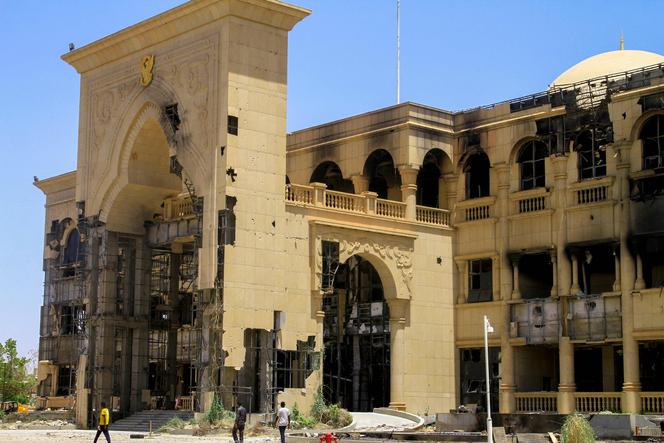


Sudan's paramilitary Rapid Support Forces shelled the presidential palace in Khartoum on Thursday, May 1, in their second bombardment of the capital in less than a week, an army source said. The paramilitaries fired long-range artillery at the palace from the al-Salha neighborhood across the White Nile, their closest position since the army recaptured Khartoum in March, the source told Agence France-Presse (AFP), on condition of anonymity. There were no immediate reports of any casualties from the shelling, which followed a similar bombardment of the army's General Command headquarters in Khartoum on Saturday.
The paramilitaries have been at war with the regular army since April 2023. The conflict has killed tens of thousands of people and displaced 13 million more. Since its loss of Khartoum in April, the RSF has focused on consolidating its control of the vast western region of Darfur, where the besieged city of el-Fasher is the last major population center still in the army's hands.
In the past three weeks, at least 542 civilians have been confirmed killed in North Darfur, the United Nations said on Thursday. "The horror unfolding in Sudan knows no bounds," UN human rights chief Volker Türk said in a statement The conflict has effectively split Sudan in two with the army holding the north, east and center, while the RSF controls nearly all of the west and swathes of the south.
The RSF said on Thursday it had captured the desert town of el-Nuhud in West Kordofan state, a key staging post on the road to Darfur. In a video shared on Telegram, an RSF spokesman said fighters had "liberated" the town, 400 kilometers east of el-Fasher. There was no immediate word from the army. If confirmed, the loss of the town would complicate the army's efforts to relieve its besieged garrison in el-Fasher. Any relief convoy from central Sudan for the troops and allied militia under RSF attack in el-Fasher would need to pass through el-Nuhud.
The RSF has stepped up its assault on el-Fasher in recent weeks, overrunning two nearby displacement camps and pounding the city with artillery bombardments. The paramilitaries' advance prompted an exodus of hundreds of thousands of displaced civilians from the camps where they had already endured months of famine.
